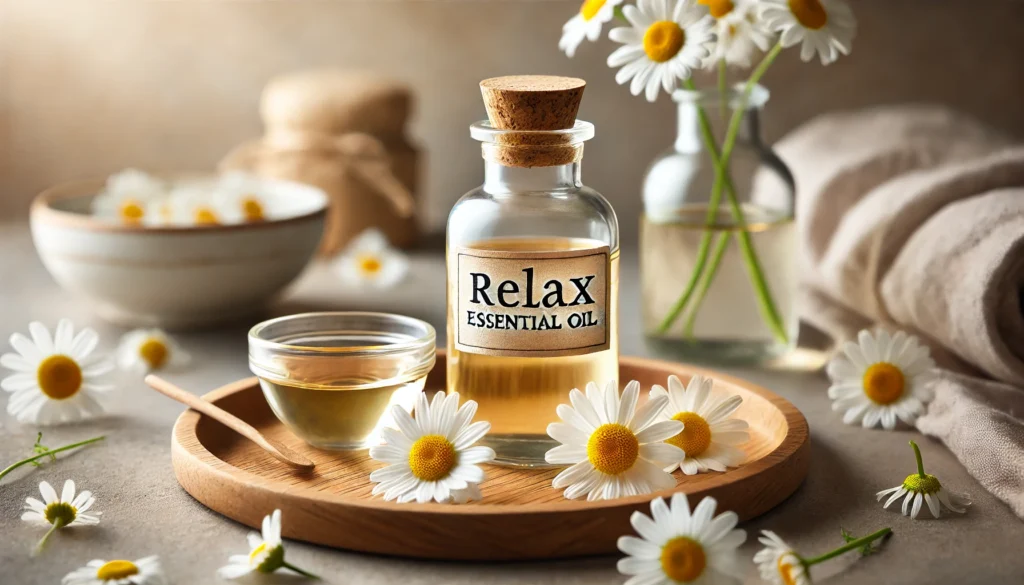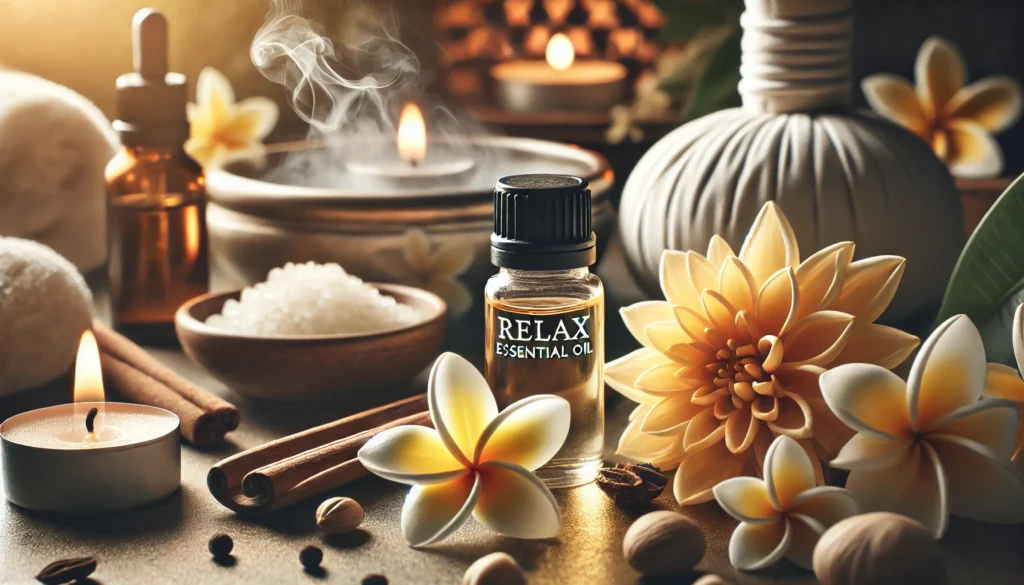In this article, we will delve into the world of essential oil blends specifically crafted for alleviating anxiety and panic attacks. These blends leverage the synergy of various oils to create powerful, natural remedies. We will explore their historical roots, current applications, and future potential, providing a comprehensive guide for those seeking holistic approaches to mental well-being.
You may also like: Top 10 Herbs for Stress Relief
Understanding Essential Oils and Their Role in Anxiety Relief
Essential oils are concentrated plant extracts that capture the natural fragrance and beneficial properties of their source. They have been used for centuries in traditional medicine systems across the globe. Today, the science of aromatherapy is well-recognized, with evidence supporting the efficacy of essential oils in promoting relaxation, reducing stress, and alleviating symptoms of anxiety.
The Historical Roots of Essential Oils
The use of essential oils dates back thousands of years, with records indicating their use in ancient Egyptian, Chinese, and Indian cultures. These societies utilized essential oils not only for their fragrant qualities but also for their therapeutic benefits. The Egyptians, for example, were known for their elaborate use of oils in both rituals and medicine, while traditional Chinese medicine incorporated various plant extracts to balance the body’s energy and emotions.
In the Middle Ages, essential oils played a significant role in European medicine. The distillation process was refined during this time, allowing for more concentrated and potent extracts. This period marked a significant advancement in understanding the healing properties of plants, paving the way for modern aromatherapy practices.
The Science Behind Aromatherapy
The olfactory system, responsible for our sense of smell, is directly linked to the brain’s limbic system, which governs emotions and memory. When inhaled, essential oils interact with this system, triggering physiological and psychological responses that can soothe anxiety and calm the mind.
Research has shown that specific essential oils contain constituents like linalool, limonene, and beta-caryophyllene, which have been associated with anxiolytic effects. These natural compounds interact with neurotransmitter receptors in the brain, influencing mood and emotional regulation. Additionally, studies suggest that aromatherapy can reduce cortisol levels, a hormone linked to stress, further supporting its role in anxiety management.
The Psychological Impact of Scent
The power of scent is profound, capable of evoking memories, altering moods, and even influencing behavior. Aromatherapy leverages this intrinsic connection between smell and emotion to promote mental well-being. The simple act of inhaling a familiar or pleasant scent can trigger the release of endorphins and serotonin, neurotransmitters that enhance mood and promote relaxation.
By understanding the psychological impact of different scents, individuals can tailor their use of essential oils to suit their specific emotional needs. For instance, floral scents are often associated with calmness and tranquility, while citrus scents can invigorate and uplift the spirit. This personalized approach allows for a more targeted and effective anxiety management strategy.

Top Essential Oil Blends for Anxiety
Lavender and Bergamot
Lavender (Lavandula angustifolia) is renowned for its calming properties, making it a staple in anxiety-relief blends. When combined with bergamot (Citrus bergamia), a citrus oil known for its uplifting qualities, the blend creates a harmonious effect that can alleviate anxiety and uplift the spirit.
Usage Tip: Diffuse this blend in the evening to create a serene atmosphere conducive to relaxation and sleep. The gentle aroma can help ease the transition from a busy day to a restful night, promoting a sense of peace and well-being.
Frankincense and Orange
Frankincense (Boswellia carterii) has been used for centuries in spiritual and meditative practices. Its grounding aroma, when paired with the bright, refreshing scent of orange (Citrus sinensis), can help center the mind and reduce feelings of stress and panic.
Usage Tip: Apply diluted to pulse points during meditation or moments of high stress for instant calming effects. This blend not only soothes the mind but also invigorates the senses, offering a balanced approach to anxiety relief.
Ylang Ylang and Clary Sage
Ylang ylang (Cananga odorata) is celebrated for its ability to reduce tension and promote feelings of joy. Combined with clary sage (Salvia sclarea), which can help balance hormones and stabilize mood, this blend is particularly effective for anxiety related to hormonal fluctuations.
Usage Tip: Use in a warm bath to enhance relaxation and emotional balance. The heat of the water helps to release the oils’ therapeutic properties, creating a spa-like experience that can melt away stress and tension.
Chamomile and Vetiver
Chamomile (Matricaria chamomilla) is known for its soothing qualities, while vetiver (Vetiveria zizanioides) offers a deep, earthy aroma that provides grounding and stabilization. Together, they form a potent blend that can help calm racing thoughts and induce tranquility.
Usage Tip: Create a pillow spray with this blend to support restful sleep and reduce nighttime anxiety. The gentle mist can create a calming bedtime ritual, encouraging a deep and restorative sleep.
Rose and Sandalwood
Rose (Rosa damascena) is often associated with love and compassion, offering a comforting and calming effect on the mind. Sandalwood (Santalum album), with its rich, woody aroma, provides a sense of grounding and peace. Together, they form a nurturing blend ideal for moments of emotional vulnerability.
Usage Tip: Use as a personal fragrance or in a diffuser during self-care routines to promote self-love and acceptance. This blend encourages a positive mindset, fostering resilience and emotional strength.

Crafting Your Own Essential Oil Blends
While pre-made blends are available, crafting your own essential oil blends allows for personalization based on individual preferences and specific needs. Here are some guidelines for creating effective anxiety-relief blends:
Selecting the Right Base Oil
Choose a carrier oil such as jojoba, almond, or coconut oil to dilute your essential oils. This not only ensures safe topical application but also enhances absorption. Each carrier oil has unique properties; for instance, jojoba closely resembles the skin’s natural sebum, making it ideal for sensitive skin, while coconut oil offers moisturizing benefits.
Combining Complementary Oils
Consider the therapeutic properties of each oil and how they might work together. A balanced blend often includes a top note (uplifting), a middle note (balancing), and a base note (grounding). The interplay of these notes creates a harmonious and effective blend, offering both immediate and lasting effects on anxiety.
Testing and Adjusting Your Blends
Start with small quantities and test the blend’s aroma and effects. Adjust proportions as needed to achieve the desired outcome. It’s important to remember that the potency of essential oils can vary, so finding the right balance may require some experimentation.
Storing Your Blends Correctly
Keep your blends in dark glass bottles away from heat and sunlight to preserve their potency and extend their shelf life. Proper storage not only maintains the quality of your oils but also ensures their therapeutic benefits remain intact over time.
Experimenting with Diffusion Techniques
Experiment with different diffusion techniques to find the most effective method for your needs. Whether using a traditional diffuser, reed diffusers, or even a simple tissue inhalation method, the way you experience essential oils can impact their effectiveness. Tailoring the diffusion method to the specific blend can enhance its calming and anxiety-reducing effects.
The Future of Essential Oils in Anxiety Management
As interest in natural remedies grows, the role of essential oils in mental health management is likely to expand. Future research may focus on isolating specific compounds within oils that contribute to their anxiolytic effects, leading to more targeted and effective formulations.
Advances in Essential Oil Research
The scientific community is increasingly recognizing the potential of essential oils in mental health care. Ongoing studies aim to uncover the precise mechanisms by which these oils influence mood and emotion. By identifying the active compounds responsible for their effects, researchers hope to develop more precise and potent therapeutic blends.
Technological Innovations in Oil Extraction
Technological advancements in oil extraction and analysis will likely enhance the quality and efficacy of essential oil products, providing consumers with more reliable and potent options. Innovations such as supercritical fluid extraction promise to yield purer and more consistent oils, maximizing their therapeutic potential.
Integrating Essential Oils into Holistic Health Practices
The integration of essential oils into holistic health practices is on the rise, with practitioners and consumers alike recognizing their value as a complementary therapy. As awareness and understanding grow, essential oils may become a staple in various wellness settings, from spas to mental health clinics.
Conclusion
Essential oils offer a compelling alternative for those seeking natural anxiety remedies. By understanding the properties of different oils and how they can be combined, individuals can harness the power of aromatherapy to support mental well-being. Whether used in a diffuser, applied topically, or incorporated into daily rituals, essential oil blends provide a versatile and holistic approach to alleviating anxiety and promoting emotional balance.
As always, consult with a healthcare professional before making significant changes to your health regimen, especially if you have underlying conditions or are taking medication. With the right guidance and approach, essential oils can be a valuable tool in your wellness arsenal. Embracing a natural approach to anxiety management can empower individuals to take control of their mental health, fostering a sense of autonomy and personal growth.
Further Reading:
11 Relaxing Essential Oils for Anxiety
Top 7 Essential Oil Blends for Anxiety and Panic Attacks
Aromatherapy Recipes for Anxiety
Important Note: The information contained in this article is for general informational purposes only, and should not be construed as health or medical advice, nor is it intended to diagnose, prevent, treat, or cure any disease or health condition. Before embarking on any diet, fitness regimen, or program of nutritional supplementation, it is advisable to consult your healthcare professional in order to determine its safety and probable efficacy in terms of your individual state of health.
Regarding Nutritional Supplements Or Other Non-Prescription Health Products: If any nutritional supplements or other non-prescription health products are mentioned in the foregoing article, any claims or statements made about them have not been evaluated by the U.S. Food and Drug Administration, and such nutritional supplements or other health products are not intended to diagnose, treat, cure, or prevent any disease.


